Spoiler Alert
SPOILERS AHEAD: It is impossible to address the topic of this article without commenting on the most memorable moment in Final Fantasy VII and its narrative impact on the original work and the Remake. Therefore, this article contains spoilers for Final Fantasy VII, Crisis Core, Final Fantasy VII Remake and potential spoilers for Final Fantasy VII Rebirth, as well as spoilers for Star Wars: The Empire Strikes Back.
This article was written before the February 3rd leak of the game's trophies, whose names reveal a key plot line. If you want to maintain a fresh experience at the launch of FFVII Rebirth, I recommend avoiding any info regarding them.
The First Mourning
This story begins in 1998, or 1999.
A five or six-year-old child shared the family's newly acquired PlayStation with his brother, ten years older. One day, this brother, passionate about RPGs, took home a recent game that everyone was talking about when it came to this genre for consoles: Final Fantasy VII.
As this wasn't his mother tongue, this child's knowledge of English was almost nil. However, he really enjoyed watching the game to the point of giving up his hours to his brother to watch the story progress for longer. For him, this wasn't much different from watching an anime, one in which he didn't understand what was written, and his brother needed to explain the main events in the most palatable way possible.
They would maintain this dynamic for months, from city to city, challenge after challenge, until a moment came that neither of them expected: Sephiroth coming from the sky with his sword drawn, Aerith's body slowly falling to the ground as a melancholic song begins to play, Cloud holding her body and carrying her to the lake to leave her there forever. The way his brother stared at the screen, put down the controller and turned off the console in silence - the child needed no explanation, he understood.
He understood and felt sad, Aerith was his favorite character besides Cloud (after all, spiky hair, giant sword, his entire aesthetic screamed anime), and seeing his favorite character “bury” another was his first experience with mourning or grief.
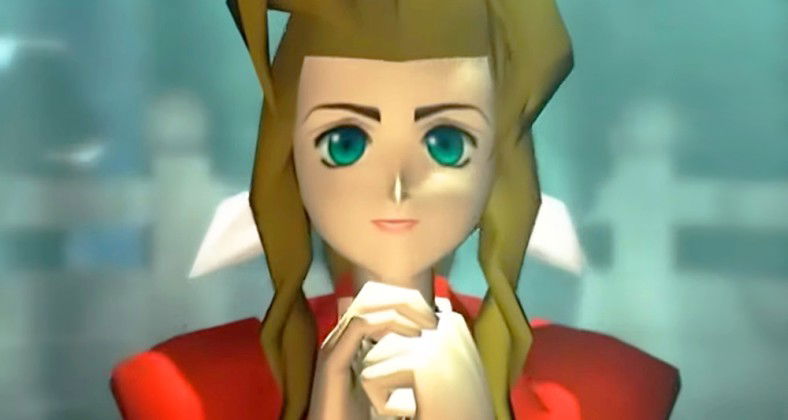
More than two decades have passed, this brother is now 40 years old, and we don't even live in the same country anymore. Of all the things we could discuss in our lives over the holidays, we talked about Final Fantasy VII Rebirth and what it would be like to face this moment in high definition.
One game left this permanent mark on our lives. Even after two and a half decades, experiencing this journey again brings a mixture of excitement of reuniting with Cloud, Aerith and their companions, accompanied by this weird fear of reliving one of the most memorable scenes of our youth.
Final Fantasy VII is about learning through grief
It is no news that Final Fantasy VII is the most acclaimed single player game in the series by fans and critics, and its narrative landmark has echoed through generations. Between its approach to fears surrounding technological and nuclear advance, the impact of mega corporations on social structure and the environment, and the search for identity at the core of its characters' development, one theme is the most recurrent when we comment on its legacy in the industry and popular culture: Grief.
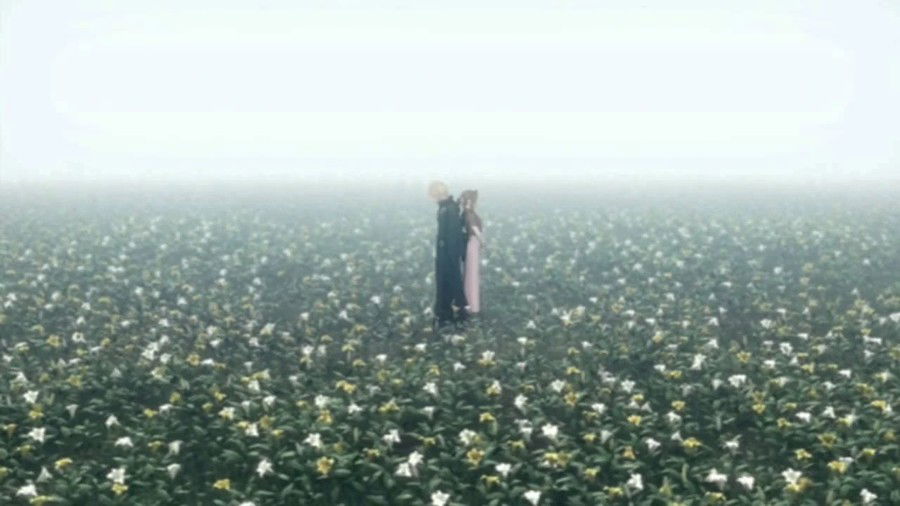
Final Fantasy VII is a game about grief and trauma, all the playable characters experience it in some way: whether it's your family murdered by a swordsman with a god complex, your city destroyed and your culture smothered by corporate greed, the nightmare of being unable to save the person you loved most from a mad scientist or, worse, being the last survivor of your race - these traumas have changed them forever and are reflected in their personalities.
It makes sense. Grief is an arduous process of accepting conditions we don't want and keeping on living despite them, it's about keeping the memory of another alive when that person is no longer here, about this fragile mortality that takes from us things we love while making us aware of as our time is also finite - it is one of the heaviest burdens we can feel, and it forever changes ourselves and the way we live.
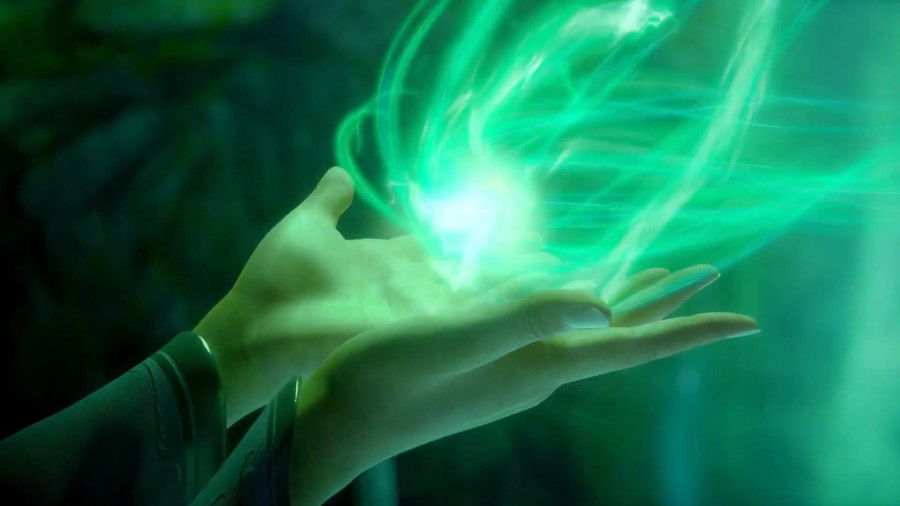
FFVII addresses this strange process of learning and bitter maturation around grief in the search for a comforting answer on who we become after the shock and what we are left with after the loss. In it, this comfort comes from a logical and abstract concept of what exists after death: the Lifestream, where everything that is born comes from and where everything that dies goes, where all souls connect, the essence and strength of the Planet we inhabit.
In this way, its plot provides comfort and maturity about one of the most difficult moments of our lives. It is a desolate hug, coming from someone who, like you, has also lost someone they loved. Its story, from beginning to end, is a narrative about life in a collective and abstract scope, and the consequences of death and mourning in an individual sense.
You might be wondering why I'm going on and on about grief and Final Fantasy VII in my childhood. As we approach the second episode of the remake, Final Fantasy VII Rebirth, the more I believe it will be the most heartbreaking game of an entire generation.
FFVII Remake and Omen
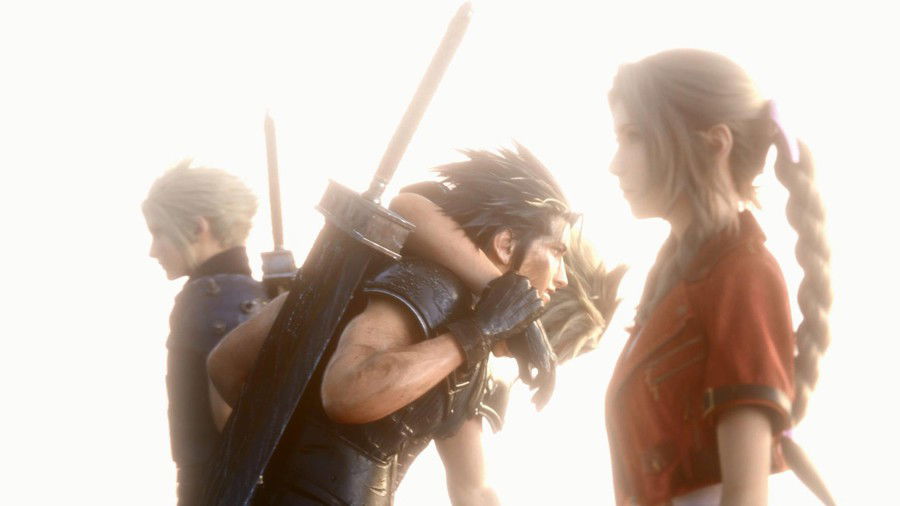
Final Fantasy VII Remake and its episodic plot is one of the most greedy narratives I've ever seen, which wouldn't be possible to experience if it weren't for the almost thirty years that separate it from the original game - it does an excellent job of hyping up those who don't know FFVII while bringing in enough to become unique and special for longtime fans.
One of these elements revolves around Aerith and her fate. It is evident how she and Sephiroth are the only two characters with knowledge of the events behind the first game, and their dialogues with Cloud are a constant warning of how that is not the same story through phrases, attitudes and even flashforwards which connect with the two key plot lines of the 1997 game: the end of the first disc and the main character's identity.
It all starts when Cloud meets Sephiroth in the second chapter. All of his sentences sound dubious, whether they refer to Nibelheim, or to the events that should occur in the future. When he says, “The shiver of her flesh yielding to my blade”, it's about Cloud's mother, but for anyone who played FFVII, it's impossible not to remember Aerith.
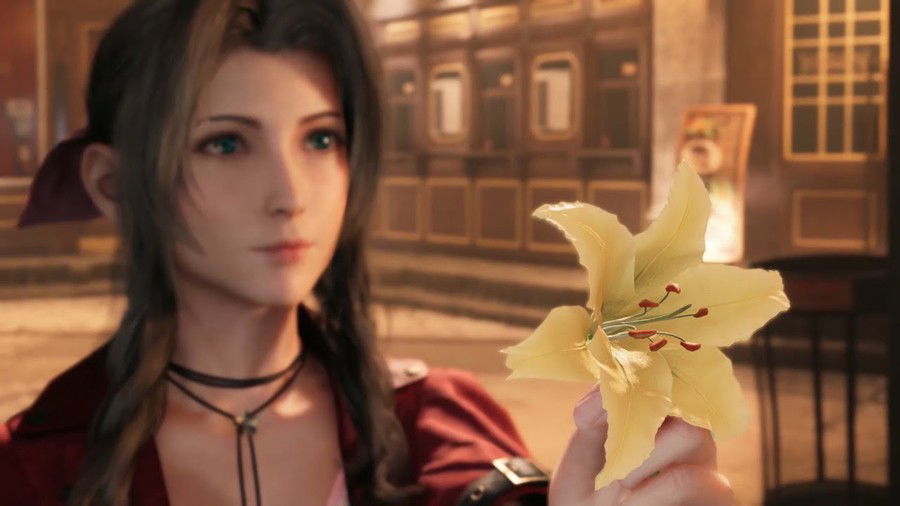
The dubiousness gets worse when Cloud and Aerith's eyes meet for the first time, where time freezes as the villain touches her shoulder as he says“You can't save anyone”. As Cloud snaps out of it, his brief talk with Aerith packs another punch in the gut when she, while offering a flower, comments that they used to be given by lovers when they were reunited - a reference to another key plot in the original story.
I the Sector 5 church, Cloud has a flashforward to Aerith's fate, and at her house the night before her rescue, she holds hands in the same way as she did in her death and her words sound like the farewell she couldn't have in the first game as she thanks Cloud for their time together while accepting everyone dies someday.
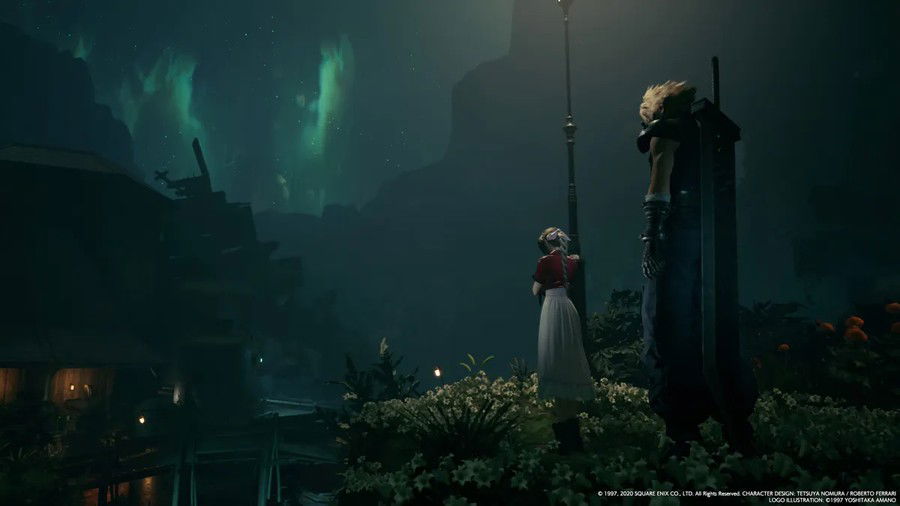
The Remake refers to the most striking moment of the original plot at all times in a language that is clear to those who experienced it, but imperceptible to first-time players. It's natural to use this narrative device so much, after all, the first chapter in the trilogy has destiny as its main theme, and the culmination of the last arc embarks on the concept of breaking free from its shackles to go on an unknown journey - another dubious message of relief and uncertainty.
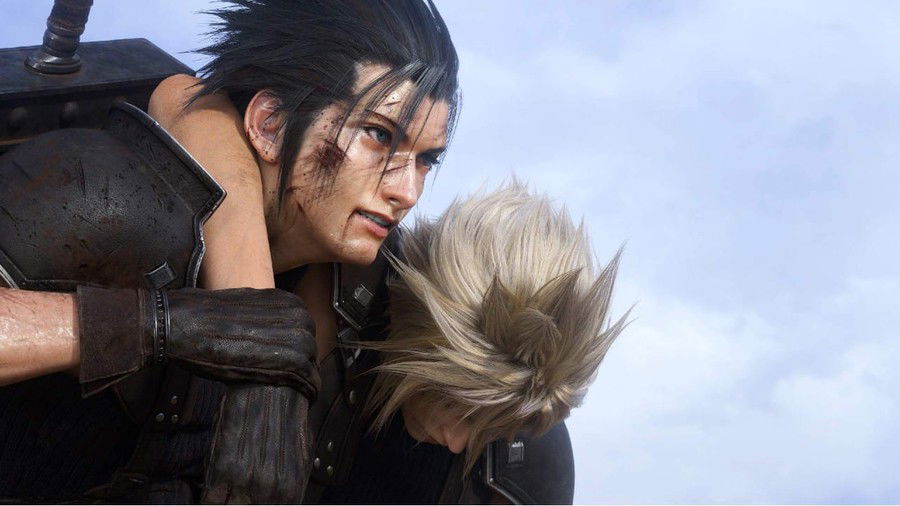
Uncertainty about the characters' futures is a key concept in the advertising for Final Fantasy VII Rebirth in the phrase “The world will be saved, but will you?”. The concept of timelines where Zack is alive and how both Aerith and Sephiroth seem to be omnipresent beings seeking to manipulate events in their favor are crystal clear at this point - It is also a theme already known in the franchise and used in other titles, such as Hydaelyn and Zodiark's arc in Final Fantasy XIV and the Dissidia series.
The Crisis Core Experience
It's not the first time that FFVII fans will live in apprehension for an entire game.
Crisis Core is considered one of the saddest titles and with the most memorable ending in the franchise. Its story addresses the events that occurred before Final Fantasy VII, so those who followed it know the main character's fate and the plot's outcome, but it doesn't stop them from feeling empathy and turning Zack Fair into one of the most loved characters in the community.
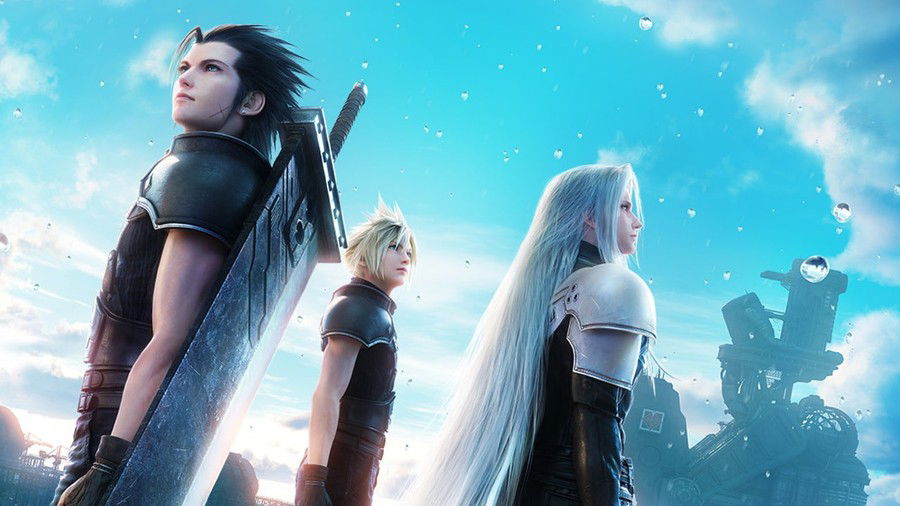
Directed by Hajime Tabata (Final Fantasy XV), Crisis Core stood out by taking a character whose appearance in the original game was based on a few flashbacks and making him engaging by symbolizing everything a hero could be through his relationship with others already well-known figures: Cloud, Aerith, Sephiroth, Tseng and even Yuffie, in addition to Angeal, his mentor.
Following Zack's story is like reading a book that you accidentally started by the last chapter, or going to a movie for the second time because you only managed to get to the final fifteen minutes in the previous session. You already know the outcome, but you still have pages or entire hours of the work to follow and consequently get involved with the main character and his dilemmas, passions, conflicts and, of course, his grief.
As the plot progresses, the more the interlocutor becomes attached to the hero and the more torturous the knowledge of the events that follow becomes. A spoiler of the ending can often discourage people from playing, but in this case, it motivates us to know its story until the moment we recognize that it is about to end - the excitement of progressing and knowing the smallest details gives way to fear of finishing it and witnessing the death of a lovable protagonist.
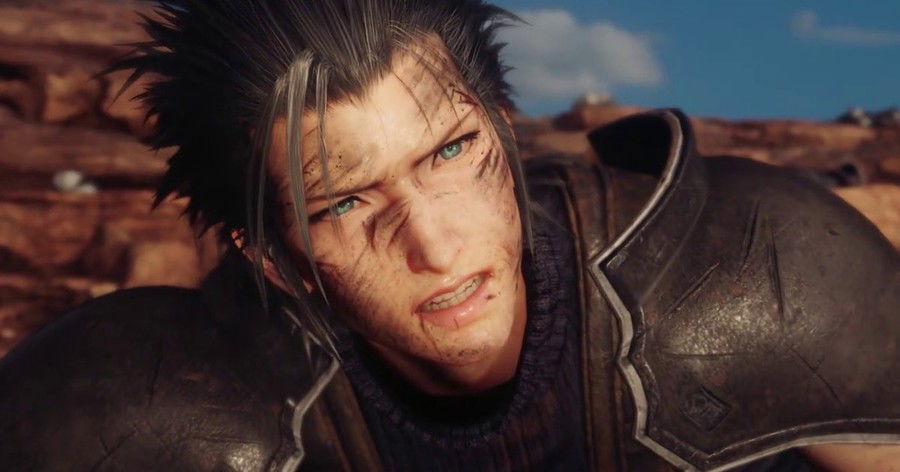
Zack caused this conflict in several fans, the butterflies and goosebumps when, in the Remake, he shows up in the scene preceding his last battle, shot by shot, is registered on the face of any fan at that moment, and the surprise of seeing him alive at the end of the Remake and the Intergrade DLC was received with incredulity, but also with the relief of having more time and new adventures with a favorite hero.
FFVII Remake and Rebirth are about Bonds and Relationships
Final Fantasy VII Rebirth is the sequel of the Unknown Journey that began when Cloud and the others broke through the chains of Destiny. From that point on, the story's unfolding is free from the constraints of the original title, while the regions and cities visited are the same as in 1997 and with two timelines, one where Zack is alive and the other where Aerith moves towards the moment of her death.
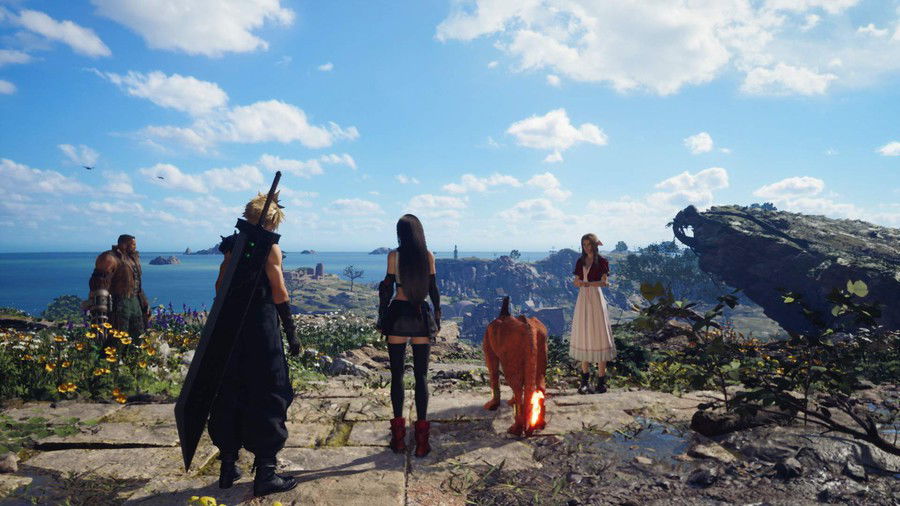
In the new retelling, the bonds around the main characters are even more important: the way the Remake deepens these relationships made Biggs, Wedge and Jessie grow considerably by gaining more screen time, and the fall of Sector 7's plate was remarkable due to the sense of community in the slums beneath it.
Now, Sector 7 was no longer a region that we would spend around 20 minutes in and never see again, there were tangible characters which you were connected with, from Johnny's family to Marle, Wedge's kittens, the children in the playground, the annoying guy from the item store, the gossipers on the streets, the Shinra employee who had a family waiting for him in the slums, and a dozen people Cloud helped during his time there.
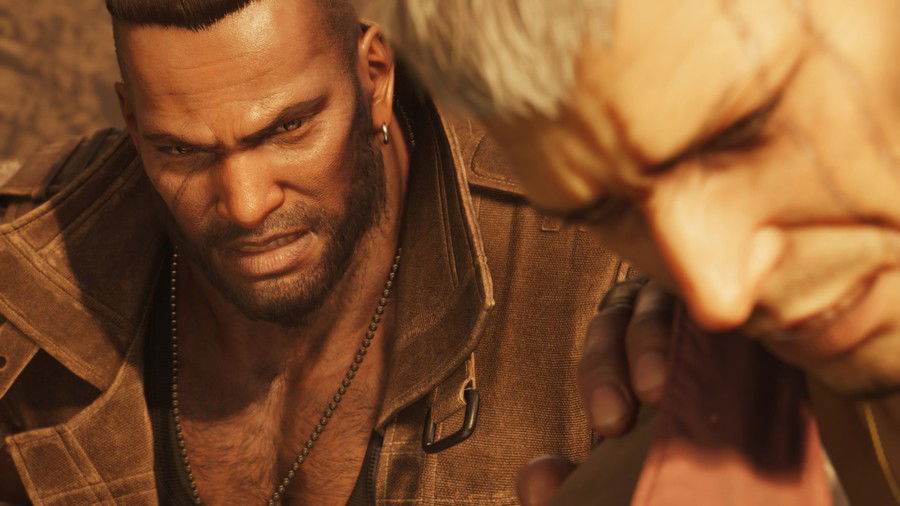
In Rebirth, it is likely that this theme of bonds will leave, in part, the social structure of the world and focus on the interpersonal relationships between the party on their adventure while facing some of their main dilemmas, like Barret upon arriving at Corel and Red XIII in Cosmo Canyon, or Aerith's loneliness as the last of the Cetra and Tifa's fear of confronting Cloud with the truth in Nibelheim, or even the moral concerns around Cait Sith's controller.
These dilemmas and their execution will make the game's heroes and heroines even more palpable, more worthy of empathy and understanding. Jessie's death scene in Remake had a huge impact, as we now knew her to the point of developing a bond - in Rebirth, we already have these bonds, and they will be reinforced and restructured both between them and for the players.
The Unknown Journey and the Consequences
The end of Final Fantasy VII's first disc is one of the most melancholic scenes in gaming history, and there's no way to make it any less poignant and tragic: no matter what your party is, they'll mourn Aerith, Cloud will carry her and leave her in the lake, and the game will never be the same.
If this is her fate in Rebirth, its execution will be even more dramatic. Characters now have facial expressions and voices, the falling body is no longer a bunch of polygons, and the fading life can express itself through her eyes. The music, the final battle, the repercussions - everything will leave a bitter and depressing aftertaste as we await the third and final episode.
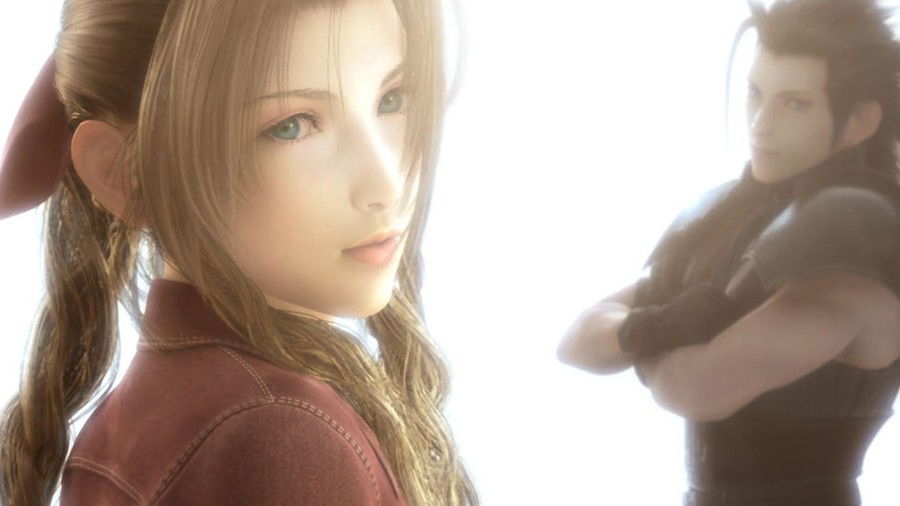
Having Zack and Aerith face the dilemma of uncertain fate is Rebirth's greatest mystery. Both are endearing and easy to identify with or admire, and both suffered tragic and painful-to-watch deaths in the original timeline. Any sign during the game of imminent danger for them will be received by most with trepidation, and could make Rebirth feel very similar to Crisis Core in that sense.
However, the acceptance of grief is a core theme in the FFVII compilation. Advent Children and Dirge of Cerberus address the problems of not dealing with this feeling well and holding on to guilt. If both of them finish the second episode alive, something will be taken from us, other characters may die, or they may even no longer exist in the third game by other means.
Depriving an entire generation of the most famous event of the PlayStation 1 era in high definition sounds almost criminal, as devastating as it is. Taking that away from them means needing to replace it with something as impactful or even more so, and not even Cloud's death, akin to Chrono Trigger, could be as shocking - therefore it is very likely that, yes, we will see Aerith die in Rebirth, just as we saw in the original game. Perhaps, with much greater consequences.
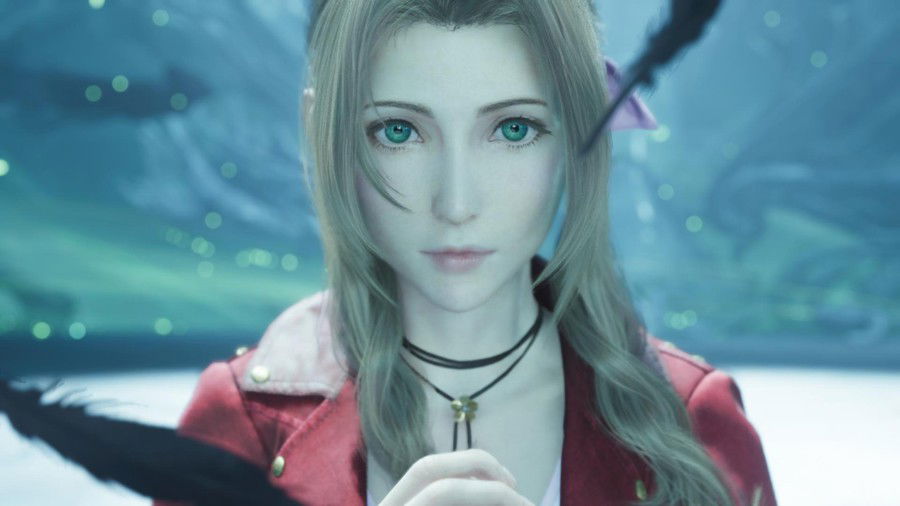
This theory is reinforced when we remember that Yoshinori Kitase, during an interview, said that the development team sought inspiration in the second episode of the original Star Wars trilogy, The Empire Strikes Back, and how the second chapter serves to “deepen the characters, their relationships and add great twists and unexpected aspects”.
This episode, it's worth remembering, has a bitter ending to make room for the third film, Return of the Jedi: Han Solo is captured, Luke discovers his father's identity in one of the most famous twists in cinema, and the Rebel Alliance narrowly escapes the Empire, but it still seeks to convey the message that we must not give up hope even in the most adverse moments.
Added to the recent interview with Naoki Hamaguchi and his expectations on how people will react to Rebirth, the shock that awaits us in the last chapter is evident, and we cannot fool ourselves with expectations of a happy ending - if following Zack's journey was conflicting and sad, following Aerith's on February 29th might break our hearts and mark the current generation of consoles in the same way it did in 1997.
Conclusion
At six years old, Final Fantasy VII was my first experience with the franchise, and seeing my brother put down the controller and turn off the console after the end of the first disc was a lasting mark on our lives.
When I finished FFVII Remake, in 2020, it was my turn to put down the controller when the message “The Unknown Journey Will Continue” had shown up, but to clap when the credits started. Its outcome seemed epic, the end of the first chapter of an unforgettable adventure with characters and a world that I have known and connected with since my childhood.
Final Fantasy VII Rebirth is one of the most anticipated games for this year, it is a blessing for me that it comes out so early, as it opens up space for us to enjoy the many other works planned for the coming months and have enough time to accept what might happen. I have no doubt how much I will enjoy every detail of its vast world and its quests while, inevitably, I will notice its mistakes and successes.
But I'm also sure that the unknown journey will be moving, and its ending might, just as it did to my brother 25 years ago, make me put down the controller and turn off my PlayStation to reflect on life and death.
Thanks for reading!

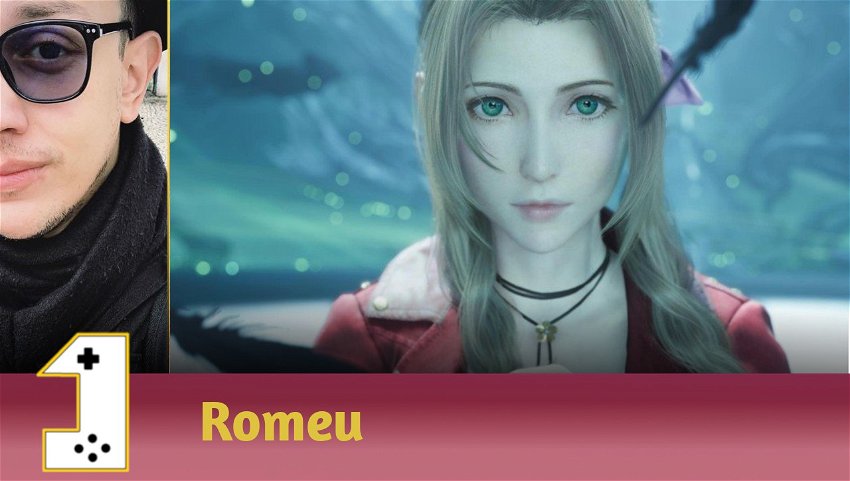





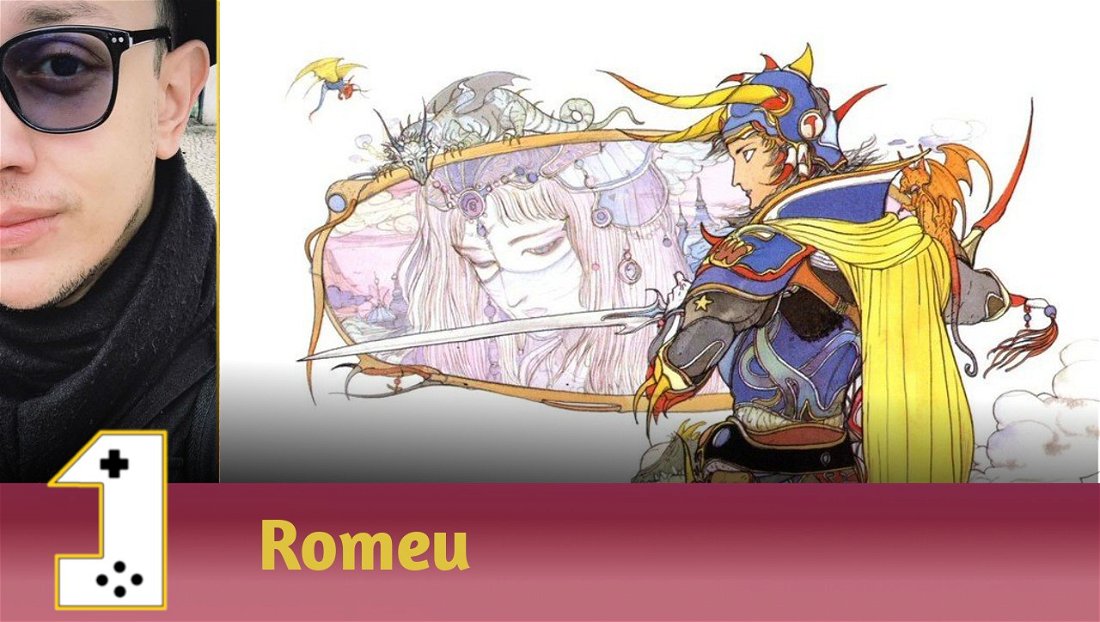
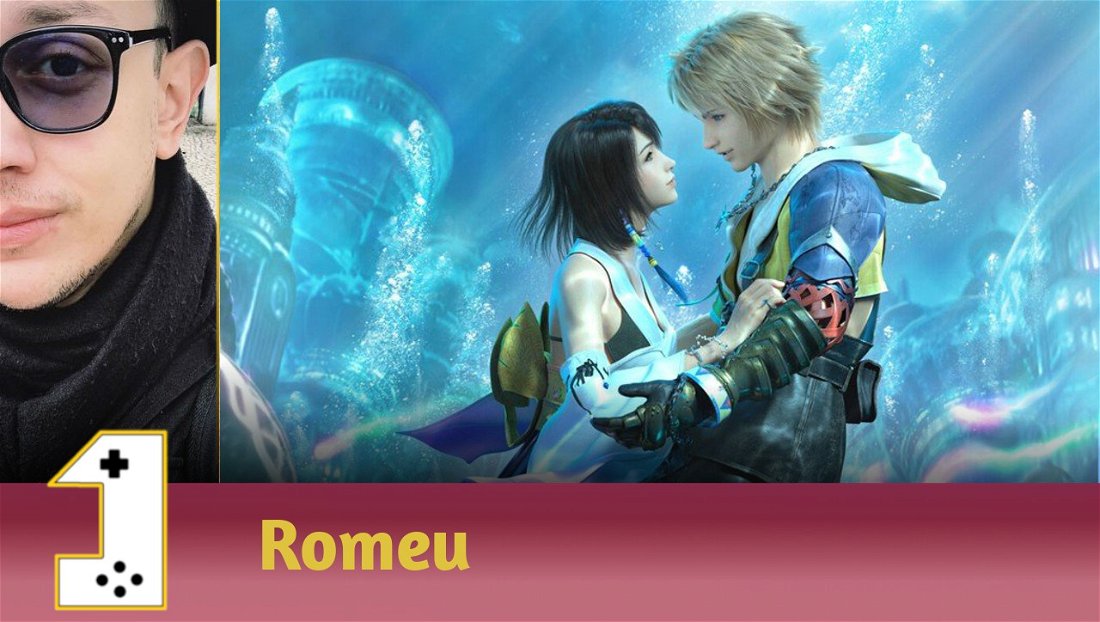



— Kommentare 0
, Reaktionen 1
Sei der erste der kommentiert